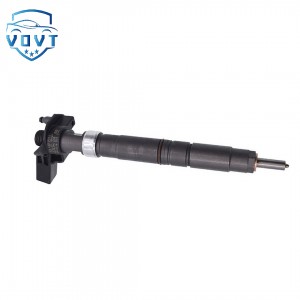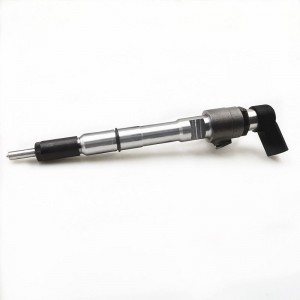Professional Manufacture 0 445 120 250 Diesel Injector Common Rail Injector Engine Parts Vehicle Parts 0445120250
products description
| Reference. Codes | 0 445 120 250 |
| Application | / |
| MOQ | 4PCS |
| Certification | ISO9001 |
| Place of Origin | China |
| Packaging | Neutral packing |
| Quality Control | 100% tested before shipment |
| Lead time | 7~10 working days |
| Payment | T/T, L/C, Paypal, Western Union, MoneyGram or as your requirement |
Influencing Factors of Fuel Injector Sealing Performance and Improvement Measures
Abstract
The sealing performance of a diesel fuel injector is essential for ensuring accurate fuel delivery, maintaining stable injection pressure, and preventing internal leakage that leads to efficiency loss and emission deterioration. This study systematically analyzes the key factors affecting injector sealing behavior, focusing on the needle–seat interface, nozzle orifice micro-wear, control valve sealing surfaces, and the influence of fuel properties under high-pressure cyclic loading. Both experimental characterization and multi-physics simulations are used to identify dominant mechanisms including micro-gap deformation, thermal expansion mismatch, pressure-induced seat distortion, and cavitation erosion at the sealing edges.
Results indicate that even micron-level wear at the needle seat significantly alters local contact pressure distribution, accelerating leakage pathways. High-pressure oscillations further intensify cavitation collapse, promoting pitting damage and reducing long-term sealing integrity. Material factors such as hardness gradient, surface roughness, and coating adhesion also play a critical role in maintaining sealing stability over prolonged operation.
Based on the identified mechanisms, several improvement strategies are proposed. These include optimizing seat geometry to improve load distribution, applying advanced surface treatments such as DLC or nano-ceramic coatings to resist wear and corrosion, and introducing controlled micro-textures to enhance lubrication while preserving sealing tightness. Additionally, thermal–structural coupling optimization of the injector body and needle guides reduces deformation under extreme pressure–temperature cycles. Enhanced filtration and fuel-conditioning measures are also recommended to minimize particle-induced abrasion.
The findings provide a theoretical foundation and practical guidance for designing high-durability injectors with superior sealing performance, supporting future high-pressure, low-emission combustion technologies.
Related products
| 1 | 5WS40200 | 11 | A2C59514909/ | 21 | 31336585 |
| 2 | FA2C53252642 | 12 | A2C59511602 | 22 | 36001726 |
| 3 | 1685796 | 13 | A2C59513556 | 23 | 1709667 |
| 4 | 31303994 | 14 | 5ws40677 | 24 | 36001727 |
| 5 | 50274V05 | 15 | 50274V0 | 25 | 9445R |
| 6 | 5WS40087 | 16 | 5WS40677 | 26 | 00Q1T |
| 7 | 16600-00Q1T | 17 | AV6Q9F593-AB | 27 | 5WS40007 |
| 8 | 00Q0H | 18 | AV6Q9F593-AA | 28 | A2C59513997 |
| 9 | 5WS40148-Z | 19 | A2C59511606 | 29 | 5WS40250 |
| 10 | 2S6Q-9F593-AB | 20 | 16600-00Q0P | 30 | A2C59514912 |























